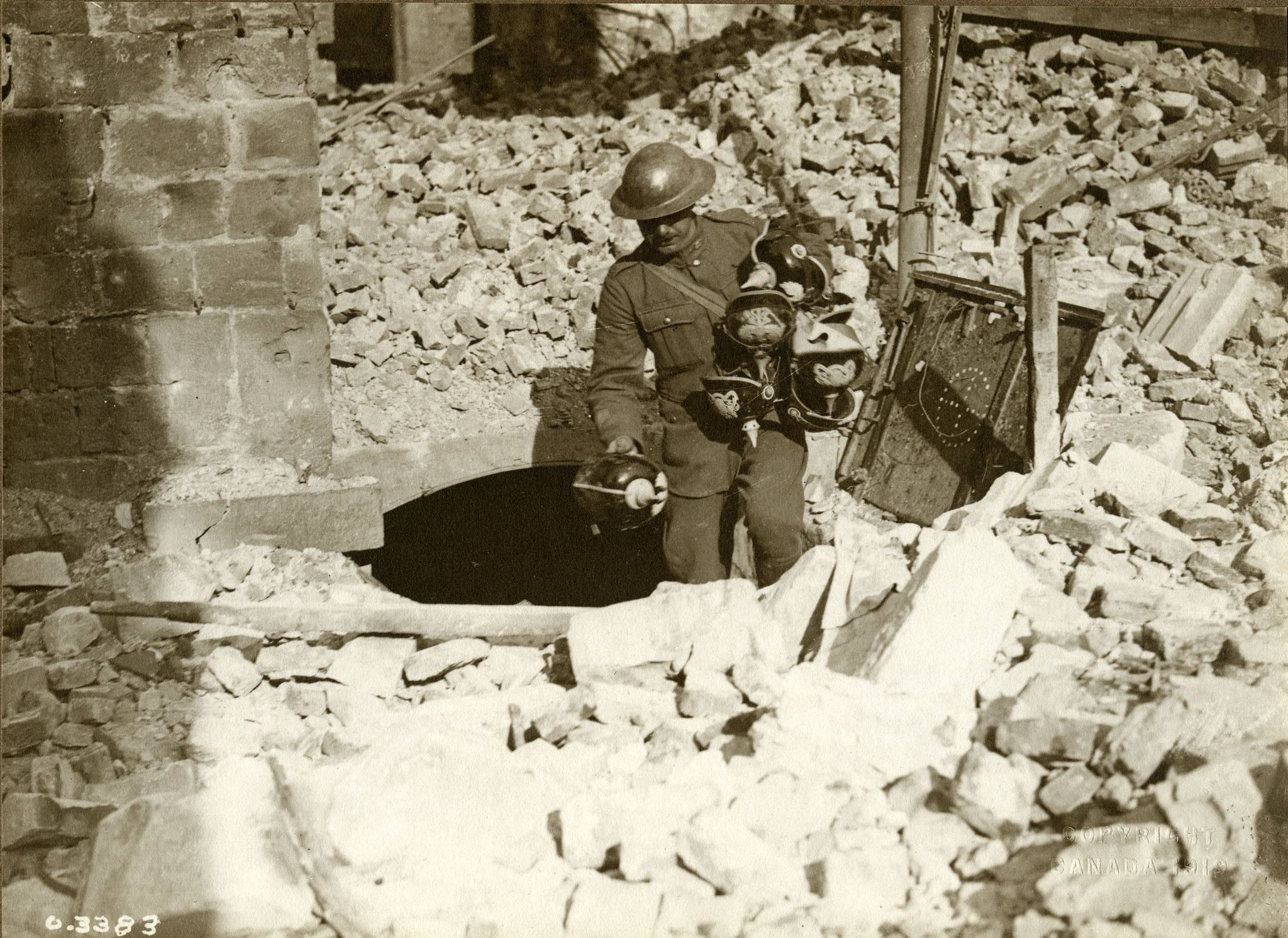One hundred years ago, on Sept. 27th, 1918, the Battles of Canal du Nord and Cambrai commenced.
Although these great battles are not as well remembered as Vimy Ridge and Passchendaele, they are still amongst the greatest victories of the Canadians in the First World War.
These autumn assaults were a continuation of the famous 100 Day Offensive, which had commenced with the break-through victories of the Canadians and Allied armies at Amiens in early August.
The German armies were rapidly falling back from their frontal positions in Northern France and Belgium. German morale had slumped enormously.
However, there were still major obstacles for the Allied Forces. One of those big obstacles was the formidable Hindenburg Line, one of the most significant German defensive positions on the Western Front.
The Allied Command realized that although the momentum in the War was now in their favour, a direct assault on the main portion of the Hindenburg Line would be very costly, with a high risk of failure.
Hence, plans were drawn up for a new four-pronged offensive across the entire Western Front from the Belgian coast in Flanders to the Argonne Forest in France.
One of these assaults focused on outflanking the Hindenburg Line by striking in the Canal du Nord area, south of the key German communications and supply centre at Cambrai.
However, Canal du Nord was itself a major military obstacle.
The Canal was incomplete since construction had halted with the outbreak of the War. The German positions were heavily defended with much of the lower lying land deliberately flooded to strengthen those defences.
Hence, to cross the Canal, the attacking soldiers had to push through a narrow band of dry land, although some wooden temporary bridges were erected to provide a bit more room for the advance.
The element of surprise was crucial, since the longer the Germans had to prepare for an attack, the greater the chances of failure.
The attacks at Canal du Nord were assigned to the Canadian Corps, under the command of General Arthur Currie.
Canadians had earned the reputation as some of the very best assault troops along the Front. Moreover, Canadians were noted for their careful planning and preparation, which were essential if such a complicated and challenging assault was to be successful.
The Canadians proved up to the challenge.
The attack commenced at 5:20 a.m. on Sept. 27th with an enormous artillery barrage. The Germans were caught off guard. The Canadians, aided by the use of tanks and the skilled work of the Corps of Engineers, quickly advanced over the Canal.
Unfortunately, despite the initial success, German resistance stiffened enormously as the Canadians advanced.
The number of casualties jumped dramatically. Finally, after six days of heavy fighting, the Canadians had to pause to rest and regroup. The Canadians had won an impressive amount of ground, but at a cost of more than 13,600 casualties.
The assault towards Cambrai recommenced on Oct. 8th.
The German resistance was fierce. Nevertheless, most of Cambrai was captured by Oct. 9th, with “mopping up” operations continuing for two more days.
The Battles of Canal du Nord and Cambrai have often been described as being amongst the most impressive tactical victories of the War. Moreover, the tremendous courage of the Canadians was demonstrated by the fact that during this portion of the great offensive by the Allied forces, Canadians won half (i.e. 6) of the dozen Victoria Crosses awarded (the highest honours possible for valour).
The cost in casualties had still been enormous, albeit somewhat “lighter” than some of the other bloody battles of the War such as The Somme and Passchendaele.
From the end of August to Oct. 11th more than 30,000 Canadians had either been killed or wounded. Several were from Central Alberta.
Among those who lost their lives was Michael Clark, the eldest son of Red Deer’s Member of Parliament, Dr. Michael Clark.
Nevertheless, the shattering defeats of the German meant that the War was now coming to a rapid close. An Armistice to end the brutal four-year war was declared one month later on Nov. 11th, 1918.



